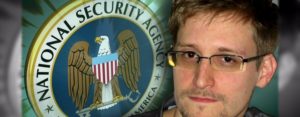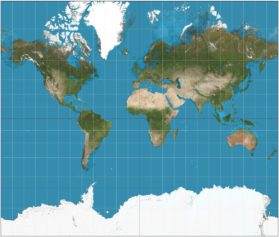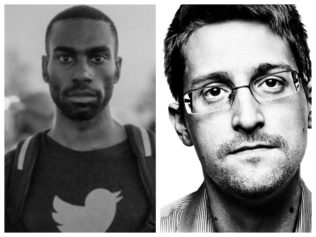
If he were to win the award, Snowden, who gave a trove of classified documents to media outlets last summer, would join the ranks of Nobel Peace laureates such as Martin Luther King Jr., Nelson Mandela, and Mother Teresa.
The nomination comes from two Socialist Left Party members: former environment minister Baard Vegar Solhjell and Snorre Valen. Their letter to the Norwegian Nobel Committee was reported by Agence France-Presse.
While the two Norwegians say they don’t condone all of Snowden’s actions, they say they’re “convinced that the public debate and changes in policy that have followed in the wake of Snowden’s whistleblowing has contributed to a more stable and peaceful world order.”
The revelations of broad and powerful spying techniques that target electronic communications “have in effect led to the reintroduction of trust and transparency as a leading principle in global security policies,” they write. “Its value can’t be overestimated.”
If you’re wondering how Nobel nominees are chosen, so were we.
“A nomination for the Nobel Peace Prize may be submitted by any person who meets the nomination criteria,” according to the Nobel website. Those criteria include members of national assemblies and governments, as well as university professors (a Swedish professor nominated Snowden for the award last year, but not until after the deadline, AFP says).
The website also notes what seems to be the only restriction regarding who can be nominated: “A nomination for yourself will not be taken into consideration.”
The deadline for all Nobel Peace Prize nominations is February. The names will be pared down to a short list in March and May. The winner of the 2014 award will be announced in October.
Snowden’s name came up today in Washington, where Director of National Intelligence James Clapper called for the former contractor and the journalists who received secret documents from him to give them back. As earlier today, the director said that unauthorized disclosures of classified material “continue to pose a critical threat.”
“Snowden claims he’s won and that his mission is accomplished,” Clapper told the U.S. Senate Intelligence Committee, according to Reuters. “If that is so, I call on him and his accomplices to facilitate the return of the remaining stolen documents that have not yet been exposed to prevent even more danger to U.S. security.”
Days before Clapper spoke on Capitol Hill, Snowden discussed the spy chief in an interview with German TV, the New York Times reports:
“According to the transcript of the interview, Mr. Snowden cited previous testimony from Mr. Clapper, in March of last year, as a prime factor in his decision to leak information to the public about the agency’s work. ‘I would say sort of the breaking point was seeing the director of national intelligence, James Clapper, directly lie under oath to Congress,’ Mr. Snowden said. ‘There’s no saving an intelligence community that believes it can lie to the public and the legislators who need to be able to trust it and regulate its actions. Seeing that really meant for me there was no going back.'”


